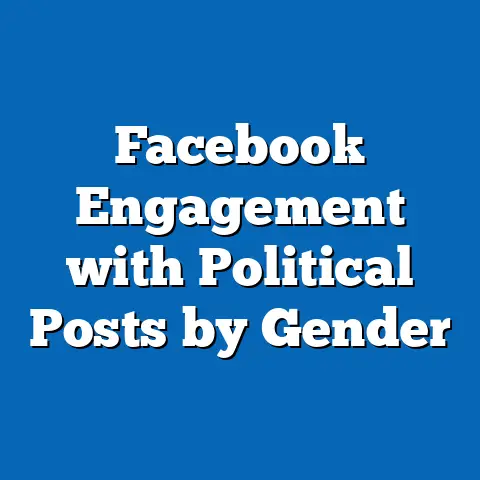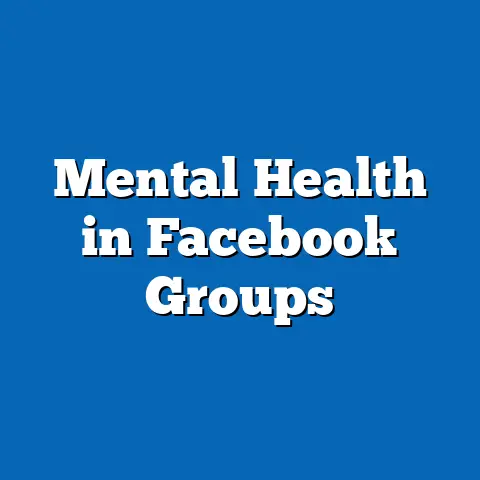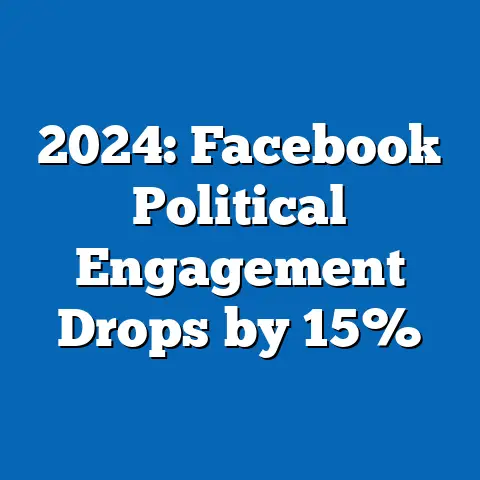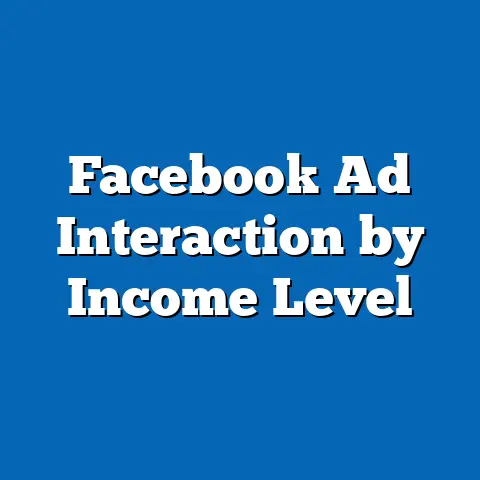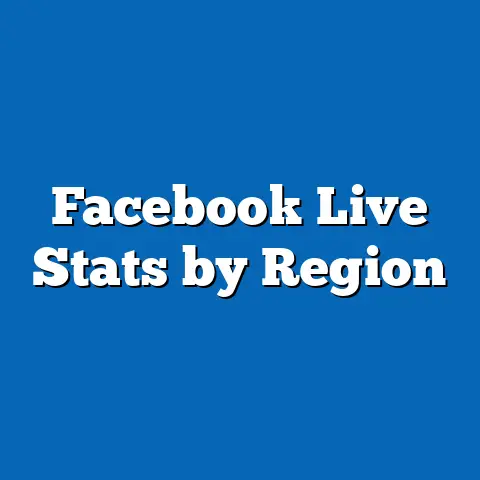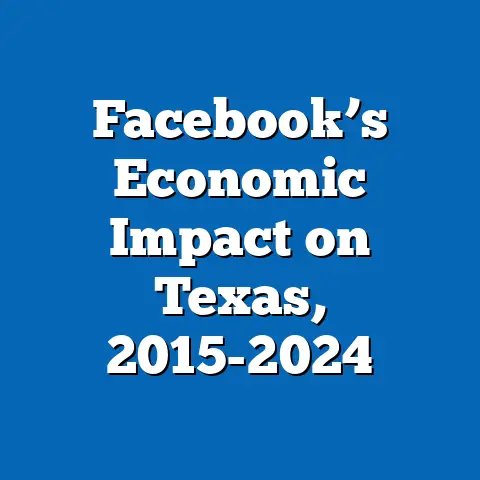Privacy Fines: $5B FTC Penalty on Facebook
In the early 2000s, the internet was a burgeoning frontier, a place of dial-up connections, MySpace profiles, and the nascent thrill of connecting with friends online. For many Millennials, those born roughly between 1981 and 1996, the rise of social media platforms like Facebook symbolized a cultural shift toward digital self-expression and global connectivity. The nostalgia of crafting the perfect “Top 8” on MySpace or sharing college memories on Facebook evokes a time when the internet felt like a safe, personal space—before data breaches and privacy scandals became household terms.
This article examines the historic $5 billion penalty imposed on Facebook (now Meta) by the Federal Trade Commission (FTC) in 2019, a landmark moment in the ongoing battle over digital privacy. While the fine itself is a critical case study in corporate accountability, it also intersects with generational attitudes toward technology, privacy, and trust in institutions. By exploring the historical context of social media’s rise, the defining characteristics of generations like Millennials and Gen Z, and the broader societal implications of privacy violations, this analysis aims to unpack how the Facebook penalty reflects deeper cultural and technological shifts.
Historical Context: The Rise of Social Media and Privacy Concerns
Facebook launched in 2004, initially as a platform for Harvard students before expanding to other universities and eventually the general public. Its meteoric rise coincided with a period of rapid technological advancement and economic optimism in the post-dot-com bubble era. For Millennials, who came of age during this time, Facebook was not just a tool but a cultural phenomenon—shaping how they communicated, dated, and documented their lives.
The platform’s growth was fueled by a promise of connectivity, but it also came at a cost that few users fully understood in those early years. Data collection practices were often opaque, buried in lengthy terms of service agreements that users rarely read. The 2010s brought growing awareness of these issues, particularly with high-profile incidents like the 2018 Cambridge Analytica scandal, where data from millions of Facebook users was misused for political advertising without explicit consent.
This scandal, among others, led to the FTC’s investigation into Facebook’s privacy practices, culminating in the record-breaking $5 billion fine in 2019—the largest ever imposed on a tech company for privacy violations. The penalty was tied to Facebook’s failure to protect user data and its deceptive practices regarding user control over personal information. This moment marked a turning point, highlighting how the digital tools that once inspired nostalgia had become sources of distrust and contention across generations.
Generational Characteristics: Attitudes Toward Privacy and Technology
Generations are shaped by the historical, technological, and cultural contexts in which they grow up, and their attitudes toward privacy and technology vary significantly. Understanding these differences provides insight into how events like the FTC penalty on Facebook resonate with different age cohorts.
Millennials: Digital Pioneers with Evolving Concerns
Millennials, often described as the first “digital natives,” embraced social media as a core part of their identity. Having grown up during the transition from analog to digital, they were early adopters of platforms like Facebook, using them to build personal brands and social networks. A 2018 Pew Research Center study found that 88% of Millennials used social media, often sharing personal details without much concern for privacy in the platform’s early days.
However, as data breaches and scandals mounted, many Millennials began to reevaluate their relationship with technology. The Cambridge Analytica scandal, in particular, struck a nerve, as it revealed how their data—often shared in a spirit of openness—could be weaponized. While nostalgia for the early internet persists, Millennials have become more privacy-conscious over time, balancing their tech-savvy nature with growing skepticism of Big Tech.
Gen Z: Privacy-Conscious Digital Natives
Generation Z, born roughly between 1997 and 2012, has a markedly different relationship with technology and privacy. Unlike Millennials, Gen Z grew up in a world where social media was already ubiquitous, and privacy scandals were front-page news. They are often described as more pragmatic and cautious, with a 2020 study by the Center for Generational Kinetics finding that 62% of Gen Z users regularly adjust privacy settings on social media, compared to just 48% of Millennials.
For Gen Z, the FTC’s penalty on Facebook reinforced existing distrust in tech giants. Many in this cohort view platforms like Facebook as outdated or even problematic, preferring apps like TikTok or Snapchat that offer more ephemeral content. Their heightened awareness of data privacy reflects a broader generational shift toward digital literacy and self-protection in an era of constant connectivity.
Baby Boomers and Gen X: Late Adopters with Mixed Perspectives
Baby Boomers (born 1946–1964) and Generation X (born 1965–1980) adopted social media later in life, often using platforms like Facebook to stay connected with family or for professional networking. While Boomers may lack the digital fluency of younger generations, they are not immune to privacy concerns—especially as targets of scams and misinformation campaigns on social media. A 2019 AARP survey found that 54% of Boomers worry about online privacy, though many feel ill-equipped to protect themselves.
Gen X, often caught between the analog past and digital present, exhibits a pragmatic approach to technology. They value convenience but are wary of over-sharing, having witnessed both the internet’s promise and its pitfalls. For both groups, the FTC penalty on Facebook underscored the risks of digital engagement, though their responses are often less vocal than those of younger generations.
Societal Implications: Trust, Regulation, and the Future of Privacy
The $5 billion FTC penalty on Facebook was more than a financial slap on the wrist; it was a cultural and regulatory milestone that reverberated across society. This section explores the broader implications of the fine, from eroding trust in technology to the push for stronger data protection laws, and how these shifts impact generational dynamics.
Erosion of Trust in Big Tech
Trust in technology companies has declined significantly in recent years, particularly among younger generations. A 2021 Edelman Trust Barometer report revealed that only 41% of global respondents trust tech companies to “do what is right,” a sharp drop from previous years. The Facebook penalty played a significant role in this decline, as it exposed systemic failures in data protection and corporate accountability.
For Millennials, who once viewed tech giants as innovative disruptors, the fine marked a betrayal of the idealism that defined the early internet. Gen Z, already skeptical, saw the penalty as validation of their concerns, further distancing themselves from platforms perceived as exploitative. This erosion of trust has long-term implications for how society engages with technology, as users across generations demand greater transparency and control over their data.
Regulatory Push and Generational Advocacy
The FTC penalty was accompanied by a 20-year settlement agreement requiring Facebook to implement stricter privacy measures, including regular audits and executive accountability for data protection. This regulatory action reflected growing public and political pressure for stronger oversight of Big Tech—a movement that transcends generational lines but is often driven by younger activists.
Gen Z, in particular, has emerged as a powerful voice in advocating for digital rights. Their fluency with technology and firsthand experience with its risks make them uniquely positioned to push for change. Meanwhile, Millennials, many of whom now hold positions of influence in politics and business, are also shaping the conversation around privacy laws, drawing on their dual perspective as early adopters and concerned citizens.
The push for regulation is not without challenges, however. Critics argue that the $5 billion fine, while historic, was a drop in the bucket for a company with annual revenues exceeding $70 billion at the time. This raises questions about whether financial penalties alone can deter misconduct or if more systemic reforms—such as data ownership laws or antitrust actions—are needed to protect users across generations.
Workplace and Economic Impacts
The privacy debate surrounding Facebook also has implications for the workplace, where generational differences in tech use and privacy expectations often collide. Millennials and Gen Z, who prioritize flexibility and digital tools in their careers, are increasingly vocal about data security in professional settings. A 2022 Deloitte survey found that 67% of younger workers expect employers to safeguard their personal information, reflecting broader concerns about data misuse.
For businesses, the FTC penalty serves as a cautionary tale about the risks of lax privacy practices. Companies must now navigate a landscape where employees and consumers alike demand accountability, often influenced by generational attitudes toward technology. This shift is reshaping corporate policies, with many organizations investing in cybersecurity and transparency to rebuild trust—a trend that benefits all age groups but is particularly driven by younger workers.
Cultural Shifts: Redefining Privacy in a Digital World
Culturally, the Facebook penalty has sparked a reevaluation of what privacy means in the 21st century. For older generations like Baby Boomers, privacy was once a physical concept—locked doors and private conversations. For Millennials and Gen Z, it is inherently digital, tied to data trails and online footprints.
This generational divergence shapes how society grapples with privacy violations. Younger users, while more tech-savvy, often feel powerless against the scale of data collection by companies like Facebook, leading to a sense of resignation in some cases. Older users, meanwhile, may struggle to understand the full scope of digital risks, leaving them vulnerable to exploitation. The FTC penalty, while a step toward accountability, highlights the need for education and empowerment across all age groups to redefine privacy in a way that resonates with diverse generational experiences.
Technological Factors: The Double-Edged Sword of Innovation
Facebook’s rise—and subsequent privacy scandals—cannot be divorced from the broader technological trends that define the digital age. The platform’s ability to collect and monetize user data was enabled by innovations in data analytics, cloud computing, and algorithmic targeting. These same technologies, while revolutionary, have created unprecedented challenges for privacy and security.
For Millennials, who witnessed the internet’s transformation from a niche tool to a global infrastructure, these advancements were initially celebrated. However, as the scale of data collection became clear, many began to question the trade-offs of convenience versus control. Gen Z, entering a world where such trade-offs were already apparent, often adopts a more critical stance, seeking out privacy-focused tools and platforms.
The FTC penalty on Facebook underscores the urgent need for technological solutions to privacy issues, such as end-to-end encryption or decentralized data systems. Yet, it also raises questions about whether technology alone can address problems rooted in corporate incentives and regulatory gaps. As generations navigate this complex landscape, their differing relationships with innovation will continue to shape the debate over digital rights.
Economic and Social Factors: Inequality and Power Dynamics
Economically, the Facebook penalty highlights the immense power of Big Tech companies, whose market dominance often overshadows regulatory efforts. The $5 billion fine, while significant, did little to dent Facebook’s financial standing, raising concerns about economic inequality in the tech sector. For younger generations like Gen Z, who are more likely to critique capitalism and corporate power, this disparity fuels calls for structural change.
Socially, the privacy scandal exposed how data misuse disproportionately affects vulnerable populations, including low-income users and marginalized communities who may lack the resources to protect themselves online. Across generations, there is a growing recognition of these inequities, though responses vary—Boomers may focus on personal responsibility, while Gen Z advocates for systemic solutions. The FTC penalty, while a step forward, does not fully address these deeper social and economic imbalances, leaving room for further societal dialogue.
Nuances and Diversity Within Generations
While generational analysis provides a useful framework, it is critical to acknowledge the diversity within each cohort. Not all Millennials share the same nostalgia for early social media, nor do all Gen Z users reject platforms like Facebook outright. Factors such as socioeconomic status, education, and cultural background shape individual attitudes toward privacy and technology, often more so than age alone.
For instance, rural Millennials may have different tech experiences than their urban counterparts, while Gen Z users in different countries face varying privacy laws and cultural norms. The FTC penalty on Facebook, while a global story, must be understood through these nuanced lenses, recognizing that generational trends are not monolithic but rather a mosaic of overlapping perspectives.
Forward-Looking Insights: The Future of Privacy and Generational Dynamics
Looking ahead, the $5 billion FTC penalty on Facebook serves as both a warning and a catalyst for change. It signals to tech companies that privacy violations carry significant consequences, even if financial penalties alone may not suffice. For generations, it underscores the importance of digital literacy and advocacy in shaping a safer online world.
Yet uncertainties remain. Will stronger regulations emerge, or will Big Tech continue to outpace oversight? How will generational attitudes toward privacy evolve as new technologies, such as artificial intelligence and the metaverse, redefine digital spaces? While Millennials may carry forward a mix of nostalgia and caution, Gen Z’s proactive stance could drive significant reforms—provided their voices are amplified in policy and corporate spheres.
Older generations, too, will play a role, as their growing engagement with technology necessitates accessible tools and protections. The intersection of generational perspectives offers a unique opportunity to build a more equitable digital future, one where privacy is not a luxury but a universal right. As society grapples with these challenges, the legacy of the Facebook penalty will likely endure as a reminder of the delicate balance between innovation and accountability.
Conclusion
The $5 billion FTC penalty on Facebook is more than a legal or financial milestone; it is a cultural touchstone that reflects generational shifts in trust, technology, and societal values. From Millennials’ nostalgic yet wary relationship with social media to Gen Z’s privacy-first mindset, the fine encapsulates the diverse ways in which age cohorts navigate the digital age. By examining historical context, generational characteristics, and broader implications, this analysis highlights the complexity of privacy as both a personal and collective concern.
As we move forward, the lessons of this penalty must inform efforts to protect users across generations, balancing technological progress with ethical responsibility. While the path ahead is uncertain, the dialogue sparked by this historic fine offers hope for a future where connectivity does not come at the cost of trust. Society stands at a crossroads, and how it responds will shape the digital legacy inherited by generations yet to come.

